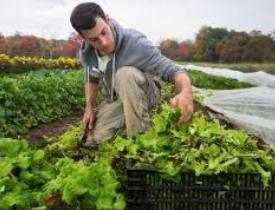Description
Course Name: Diploma in Agriculture & Plantation Management
Course Id: DIA/Q1001.
Education Qualification: 8th Pass.
Duration: 370 Hrs.
How You will Get Diploma Certificate:
Step 1- Select your Course for Certification.
Step 2- Click on Enroll Now.
Step 3- Proceed to Enroll Now.
Step 4- Fill Your Billing Details and Proceed to Pay.
Step 5- You Will be Redirected to Payment Gateway, Pay Course and Exam Fee by Following Options.
Card(Debit/Credit), Wallet, Paytm, Net banking, UPI and Google pay.
Step 6- After Payment You will receive Study Material on your email id.
Step 7- After Completion of Course Study give Online Examination.
Step 8- After Online Examination you will get Diploma Certificate soft copy(Scan Copy) and Hard Copy(Original With Seal and Sign).
Step 9- After Certification you will receive Prospect Job Opportunities as per your Interest Area.
Online Examination Detail:
- Duration- 120 minutes.
- No. of Questions- 60. (Multiple Choice Questions).
- 10 Questions from each module, each carry 10 marks.
- Maximum Marks- 600, Passing Marks- 40%.
- There is no negative marking in this module.
| How Students will be Graded: | ||
| S.No. | Marks | Grade |
| 1 | 91-100 | O (Outstanding) |
| 2 | 81-90 | A (Excellent) |
| 3 | 71-80 | A (Very Good) |
| 4 | 61-70 | B (Good) |
| 5 | 51-60 | C (Average) |
| 6 | 41-50 | P (Pass) |
| 7 | 0-40 | F (Fail) |
Benefits of Certification:
- Government Authorized Assessment Agency Certification.
- Certificate Valid for Lifetime.
- Lifetime Verification of Certificate.
- Free Job Assistance as per your Interest Area.
Syllabus
Diploma in Agriculture & Plantation Management
Agronomic Principles Practices & Meteorology
Agriculture – Definition – Importance and scope – Branches of agriculture – Evolution of man and agriculture – Development of scientific agriculture – National and International Agricultural Research Institutes Indian agriculture – Indian economy – National income – per capita income – Agricultural income in GDP – Women in agriculture and empowerment History of agricultural development in the world and India. Agriculture heritage – Agriculture in ancient India Stages of agriculture development – Era of civilization- Importance of Neolithic civilization Chronology of Agricultural technology development in India.
Soils & Fertility Management
Soil water behaviour-infiltration, redistribution, retention and movements, Soil water potential, soil water balance, soil water management practices, Soil physical environment and soil fertility relationship, consistence, swelling, shrinking, dispersion and workability of soils. Alleviation of soil physical constraints for crop production, Soil compaction processes, soil texture, soil structure-genesise valuation and management, Puddling and its effect-soil physical behaviour.
Farm Structure, Machinery & Post Harvest Processing
Agricultural Implements, Agricultural Machinery, Operation and Maintenance of Farm Machinery, Tractor systems, Operation and Maintenance, On-Farm Irrigation and Drainage Practices, Micro Irrigation Principles and Practices, Wells and Pumps Operation and Maintenance, Agricultural Process Engineering, Engineering Properties and Processing of Seeds, Green house Technology, Farm Power, Solar and wind energy, Solid waste utilization and Bio-energy, Hydrology and Management of Watersheds.
Irrigation & Weed Management
Classification and characteristics of weeds, special weed problems including aquatic and parasitic weeds, ecology and physiology of major weeds, ecophysiology of crop-weed competition including all elopathy Principles and methods of weed control, concept of integrated weed management, principles of chemical weed control, weed control through bio herbicides Mode and mechanism of action of herbicides, herbicide selectivity, herbicide combinations, adjuvant and safe nears, degradation of herbicides in soils and plants, effect of herbicides in relation to environment, herbicide resistance in weeds and crops Weed management in major crops and cropping systems.
Agronomy of Field Crops
Classification and distribution of field crops, Definitions and concept of multiple cropping, mixed cropping, intercropping, relay and alley cropping Green Manuring Cultural practices for raising of Rice, Cultural practices for raising of, Wheat Cultural practices for raising of Maize, Cultural practices for raising of Sorghum Cultural practices for raising of Soybean, Cultural practices for raising of Bengal gram, Cultural practices for raising of Red gram, Cultural practices for raising of Ground nut, Cultural practices for raising of Rape, seed and Mustard Cultural practices for raising of Sunflower.
Principles of Plants Pathology
Normal cell division, differentiation and development Uptake of water and nutrients from the soil Synthesis of food from sunlight by photosynthesis Translocation of water and food to the sites of necessity through xylem and phloem Metabolism of synthesized material Reproduction by utilizing the host cell contents by causing death of cells or by interfering with their metabolic activities through their enzymes, toxins and growth regulators by weakening of tissues due to continuous loss of nutrients.

